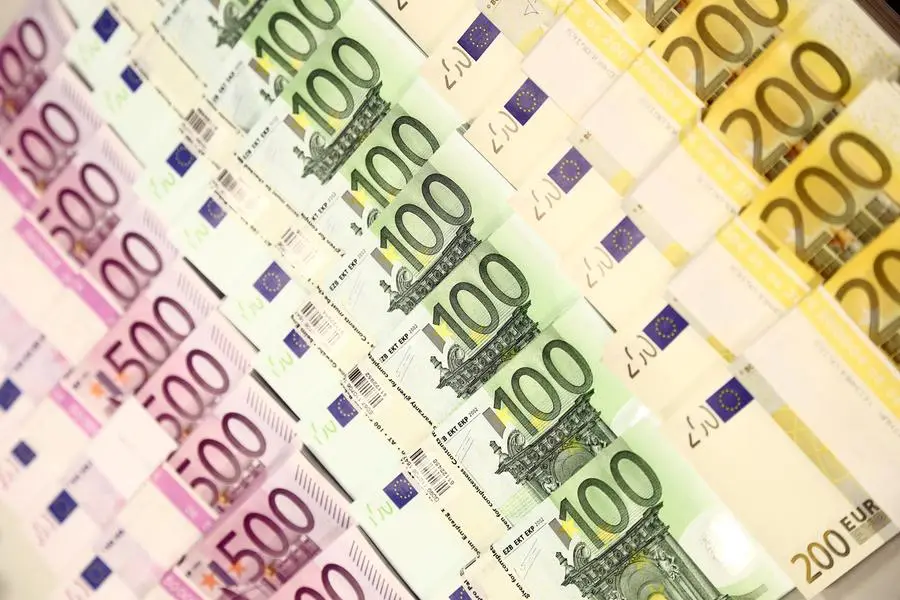PHOTO
TOKYO: The euro hovered near a one-year high versus the dollar on Thursday, as Europe's resilient economy contrasted with banking contagion risks in the United States, the debt ceiling standoff and a potential recession.
The risk-sensitive Aussie struggled to stay above the key 66 cent mark, while leading cryptocurrency bitcoin found its footing around $29,400 following wild swings in the previous session.
The yen was in a holding pattern as the Bank of Japan began a two-day policy meeting, the first under new governor Kazuo Ueda.
Europe's single currency ticked up 0.05% to $1.10415, edging back toward the overnight peak at $1.1096, the highest since April of last year.
The dollar index - which measures the greenback against six major peers, with the euro the most heavily weighted - was little changed at 101.41, following a 0.42% slide on Wednesday, when it touched a near two-week low of 101.00.
Germany again revised up growth forecasts on Wednesday, and a survey showed a continued pickup in consumer confidence.
By contrast, U.S. capital goods spending fell more than expected in the latest data overnight, adding to jitters about a downturn. The mood wasn't helped by First Republic Bank's continued slump, or the continued wrangling over an extension to the U.S. debt ceiling.
"The resilient euro zone economy alongside underlying inflation that is still going up and not down can see the ECB maintain their hawkish stance, supporting EUR," Kristina Clifton, senior currency strategist at Commonwealth Bank of Australia, wrote in a client note.
At the same time, U.S. inflation is showing a stubborn disconnect with growth, keeping pressure on the Federal Open Market Committee to tighten policy further, Clifton said.
"The risk of more than one hike to the (Fed) Funds rate is an upside risk to the USD in coming months."
Traders currently lay 80% odds on another quarter-point hike on May 3, but that is seen as the likely peak, with as many as two quarter-point cuts priced in for the end of the year.
IG analyst Tony Sycamore also sees risks skewed to the downside for the euro against the dollar. As long as the pair is below monthly resistance at around 1.1075, "EUR/USD remains vulnerable to a pullback to 1.0800," he wrote in a report.
Meanwhile, the dollar was little changed at 133.63 yen . The market consensus is that Ueda will leave ultra-easy policy settings unchanged on Friday, but no one is willing to rule out another surprise like the shock doubling of the 10-year bond yield band in December.
Aussie dollar traders are more confident that the Reserve Bank of Australia will keep rates unchanged for a second meeting next week after some softness in consumer inflation data on Wednesday.
The currency was flat at $0.6603 on Thursday, after dipping to a 1 1/2-month low of $0.6592 in the previous session.
Bitcoin firmed to around $29,060, following a day when it jumped as high as $30,022, only to then slide as low as $27,242.
IG's Sycamore says the initial strength was driven by U.S. banking concerns, but the market was "apparently spooked by a large sell order."
Provided bitcoin can remain above $25,000, Sycamore expects the token to test this month's high at $31,035.
(Reporting by Kevin Buckland; Editing by Sam Holmes)





















